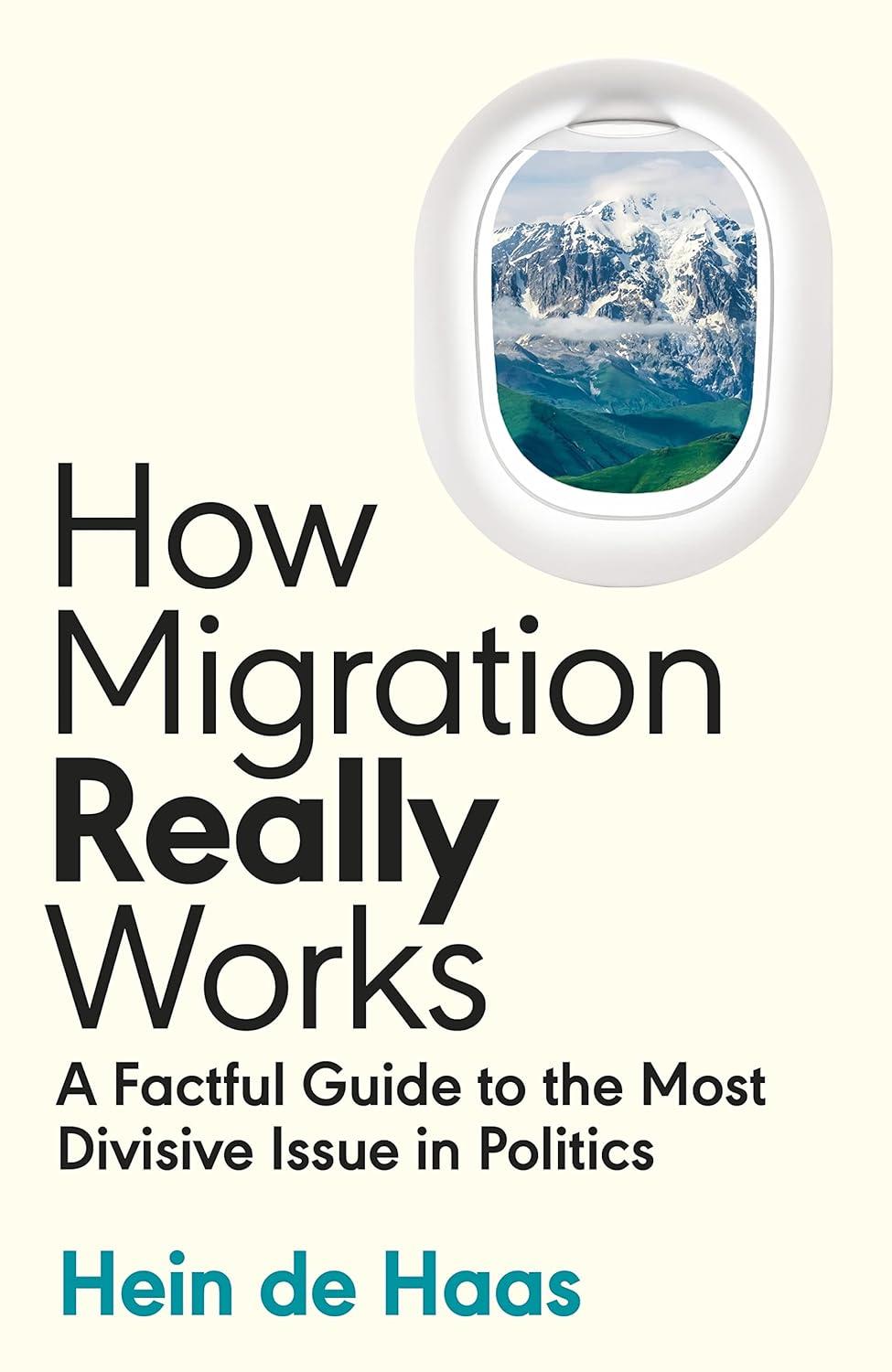The blessing of migration

 Penguin
PenguinHein de Haas | How Migration Really works - A Factful Guide to the Most Divisive Issue in Politics | Viking | 464 pages | 20,67 EUR
When you put the book by Dutch sociologist and migration expert Hein de Haas to one side, something happens that is rare after the reading of a book: you see the world with different eyes.
This new perspective begins as you read the latest morning news. Maybe it’s the payment card for migrants, intended to prevent those living in Germany from transferring their state benefit to their countries of origin, and already introduced in some federal states. Perhaps the Western world's horror at the coup government in Niger, allied with Russia and now allowing migrants from sub-Saharan Africa to cross the Sahara again - destination, Europe.
Under normal circumstances - i.e. without first having read Haas' book - this news would act as the usual trigger points for our society: migrants embezzle the aid money intended for them with state benefits, transferring it to their home countries. Worse still, with the reopening of the Niger route, we are facing a new wave of migration that is likely to threaten our economic stability and cultural identity.
Even those most well versed in history, people who have at least heard of the poverty in Germany in the mid-19th century and the emigration to South America that took place at that time, are likely to be surprised. The vivid images from Edgar Reitz's excellent film The Other Homeland - Chronicle of a Longing (2013), can leave one wondering - isn't it perhaps far worse today than it used to be?
It is not the case. And never was. To support his thesis, Haas draws on decades of his and others’ research, incorporating his own field research in Morocco and that of other scientists. In 512 easy-to-read pages, he sets about tackling the prevailing morality, which has become a mass destroyer of factual truths, primarily through populist politics and lobbying.
These facts are actually very different to what the media and politicians of all stripes proclaim and reproduce again and again. The crises of recent years do sound dramatic, with the number of refugees growing to 21.3 million by the end of 2021 and, according to Haas, 26.7 million by 2022 as a result of the war in Ukraine. However, despite this increase in numbers, the proportion of refugees in the global population is the same as it was in the early 1990s. And looking further back, the supposed increase in refugee numbers is in reality nothing more than a product of statistics. In the past, Haas writes, many countries were simply not counted: in 1951, one year after it was founded, the UNHCR began collecting refugee data, (albeit from only 21 countries). As more and more countries were included - 76 in 1970, 147 in 1990, 211 in 2010 and 216 in 2018 - so the refugee numbers increased.
Thomas Lux, Steffen Mau, Linus Westheuser | Trigger Points - Consensus and Conflict in Contemporary Society | Suhrkamp Verlag | 540 pages | 25 EUR
Haas offers more in-depth analysis of every popular, or perhaps we should say populist, myth; on the myth of a global refugee crisis, already quoted extensively above, he proves that it is not wars and oppression that "cause" migrants, since the world is more peaceful than ever before, and that Western nations have had to cope with the arrival of significantly more refugees in the post-war decades, especially in Europe.
More than wars and oppression and the comparatively few refugees using illegal routes, it is the legal migrants who are significant in terms of numbers, according to Haas. But both groups, the legal and illegal, respond in the same way to an important status quo: the Western world's need for workers, lacking in the job market.
Ronald Skeldon | Migration and Development: A Global Perspective | Routledge | 264 pages | 44.06 EUR
With a light hand, Haas outlines this perfect example of cognitive dissonance, which can be found in almost all political camps, as well as among conservative politicians in the USA and those on the left in Europe: Officially, a hard border policy is being decreed, whilst on the quiet, more and more immigration clauses are being relaxed in order not to lose the economic balance - as Haas has emphasised repeatedly: without immigration, nothing in this world works or has worked. Or, to paraphrase Skeldon's groundbreaking book Migration and Development (1997): a new paradigm is needed that sees migration not as the antithesis of development, but as an integral part of it.
Per Leo, Maximilian Steinbeis | Talking with Rights: A Guide | Kindle Edition | 183 pages | 9,99 EUR
The astonishing complexity with which Haas sews everything up is a delight. Virtually every chapter offers itself as near perfect ammunition with which to talk to the right and reassure the frightened. He makes it very clear, for example, that a payment card for migrants and similar everyday blockades are simply a bad joke - not only because they can be easily contravened - but because immigration is just not a threat to the welfare state, as Haas firmly states for Myth 9. According to Haas, the fiscal impact changes over the course of a migrant's life and generally follow a U-shape: first positive, then negative and finally positive again. New arrivals are net contributors, usually young, employed, healthy and childless. As they settle down, marry, have children and grow older, they may cost the community more as they increasingly use public services such as schools and healthcare. But when their children leave school and enter the labour market themselves, the pendulum swings back.
With the same confidence, Haas puts to rest the myth of failed integration, the danger of parallel societies and the increase in crime caused by migrants. He also unmasks the arguments of the opposite side, that immigration is a panacea for the economy and the solution for aging Western societies. And of course, according to Haas, human trafficking is just as much the reason for illegal migration as it is a modern form of slavery. Campaigns against it tend to harm the already disadvantaged, because criminalizing their work, Haas writes, does not protect them from abuse by employers, but only continues the vicious cycle of exploitation and stigmatisation.
There are thematic overlaps - some chapters could have been amalgamated with others - and the book would have been full of informative power even with a hundred fewer pages, but it is precisely the details, the surprising facts that Haas presents patiently, like a litany of prayers, which are valuable enough not to be disturbed by this overwhelming abundance. Above all - and this is what makes Haas' book so valuable and indispensable as school reading - Haas shows with scalpel-like sharpness how destructive and populist our debate culture is, which counters clear facts with convoluted arguments or simply with ignorance, impulsive aggression or maudlin lies.
Frustrating as it is clever, this book is fundamentally uplifting, since no matter how miserable and blinded by neoliberalism our Western societies may be, the basic migratory nature of man has prevailed for hundreds of years, as it does today and will do tomorrow.



